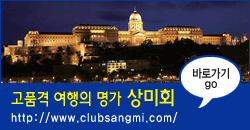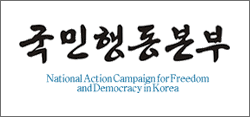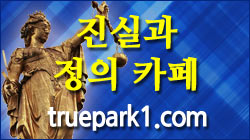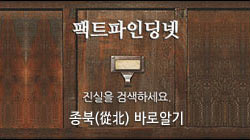by Kim Pyung-woo (Attorney and Former Head of Korea Bar Association)
Korea achieved the economic miracle from being one of the poorest agrarian countries to becoming one of the world’s top 10 trading powerhouses in the span of only a few decades, yet has not received proper credit for this achievement due to its stigma of being ruled by military dictators. That is why Koreans adopted a single, five-year presidential term in 1987 (most countries that elect presidents have adopted consecutive, four-year terms. Only a small handful of countries that suffered under long-term dictatorships have adopted single-term presidencies. Mexico is another country that has adopted a single, six-year presidential term.)
As a result, Koreans have elected six different presidents over the last 29 years, from Roh Tae-woo, Kim Young-sam, Kim Dae-jung, Roh Moo-hyun and Lee Myung-bakto Park Geun-hye, each differing in age and hailing from different parts of Korea. Korea is the only country in the world to have elected six different presidents over a 29-year period (in the U.S., most presidents succeeded in winning consecutive terms and held office for eight years).
All of the president were elected following more than 75-percent voter participation through direct balloting (in contrast, U.S. elections are indirect with voter turnouts of less than 60 percent). How many countries in the world can boast about such a democratic voting process?
Half of the world’s population does not get a chance to democratically elect their leaders as are the cases in North Korea and China, for instance. And the other half of the world have cabinet-style governments and voters get to elect only lawmakers rather than presidents or prime ministers.
A few years ago, a Japanese lawyer who is a friend of mine told me over a drink that his dream was to be able to cast his vote in electing the prime minister and voiced his envy for the Korean people who get to elect their president every five years and lawmakers every four. He even lamented that it costs a lot of money to hold elections and that Japan probably would not be able to afford so many of them. I was astounded by his comments. I recall trying to get through the awkwardness of the moment by joking to him that Koreans were really stressed out and that they turned to elections to let off some steam, even though they may cost a lot of money.
We hold elections every two years on average if you include the presidential election, general election and by-elections. Yet Koreans hit the streets holding pro-democracy protests less than a year after elections and call for revolutions. Their reasons vary widely. In 2002 it was to protest the deaths of two school girls by an armored U.S. vehicle. In 2008 it was to protest against the resumed imports of American beef, which one TV news documentary portrayed as being laced with the virus that causes the rare human form of mad cow disease. And in 2014, it was to protest the deaths of high school students in a ferry accident.
And in 2016, protesters are up in arms again seeking to bring the president down less than six months after the latest general elections, taking issue with minor issues, such as a close confidante of Park revising her speeches, the confidante’s daughter gaining entry into university as a gifted athlete and allegations that she received bribes from big businesses. They want to drive out a president who has less than a year left in office. And 90 percent of the public supports this so-called democratic revolution. Just what is democracy anyways?
At the heart of democracy is the voting process. This is the official definition according to the United Nations. China and Saudi Arabia are wealthy countries, but do not hold elections and are undemocratic countries. India is one of the poorest countries in the world, but holds elections and is considered as a democracy.
Our country elects a president every five years and lawmakers every four. And Koreans actually cast their ballots every two years if you consider by-elections that are held frequently. Not only that, Koreans elect even provincial governors, city and county representatives and heads of education offices. If a country like ours is considered undemocratic, than what country can be described as a true democracy?
In addition, taxpayers and the government foot most of the costs of these elections. I do not know any other country in the world where taxpayers and the government covers all of the election expenses. (In the U.S., elections are funded by campaign donations or from the own pockets of candidates, such as President Donald Trump.) In my opinion, having the public and government pay for the election is a truly undemocratic voting process. If so, shouldn’t the presidential hopefuls pay back the taxpayer’s money they received for their campaigns? Shouldn’t the news media and civic groups be crying out for revolution to rectify such an undemocratic election process?
Does the Korean public really want to hold a fresh round of presidential elections for the next several months less than half a year after they elected new lawmakers? People in other countries are happy with electing lawmakers once every four years, but do we really need to hold elections twice a year?
Perhaps if Korea was to become a democratic nation envisioned by 90 percent of the public, the president, lawmakers, provincial governors and other public officials should hold one-year terms and hold elections every month. Perhaps that will force them to stop hitting the streets with minor complaints?
But if taxpayers and the government have to foot the bill for those monthly elections, the entire nation will go bankrupt in a matter of years. In order to prevent this, we will have to let candidates receive donations or pay for their own election campaigns. I totally support that. If that is the Korean-style democracy the public desires.
Dec. 17, 2016
이것이 한국적 민주주의인가?
내가 보기엔 자기 선거의 비용을 자기가 안 내고 국민에게 부담시키는 것이야말로 비민주적인 선거이다. 그러면 자기가 받은 歲費(세비)도 국민에게 돌려줘야 할 거 아닌가?
우리나라는 1970~1980년대 세계 最貧困(최빈곤)의 농업국가로부터 세계 10위의 통상국가로 비약 발전하는 경제기적을 이루고서도 독재, 권위정부라는 汚名(오명) 때문에 제값을 못받아 왔다. 그래서 1987년 ‘5년 단임 대통령제’라는 非常處方(비상처방)을 썼다(대통령 책임제를 시행하는 나라는 대부분 4년 연임제이다. 단임제를 하는 나라는 장기 독재에 시달린 경험을 가지고 있는 몇몇 南美 국가들이다. 대표적으로 멕시코가 6년 단임제다).
그 결과 지난 29년간 盧泰愚(노태우), 金泳三(김영삼), 金大中(김대중), 盧武鉉(노무현), 李明博(이명박), 朴槿惠(박근혜)라는 나이, 성별, 고향, 경력이 각각인 다양한 6명의 대통령이 차례로 나왔다. 29년 동안에 6명의 각기 다른 대통령을 선출한 국민은 세상에 한국 밖에 없다(미국은 대부분의 대통령이 再選에 성공하여 8년간 재임한다).
모두 투표율 75%가 넘고, 보통, 비밀, 평등, 직접 선거로 선출된 완벽한 민주 정부였다(미국은 투표율이 60%가 안 되고 간접선거이다). 이렇게 완벽한 직접 민주주의를 하는 나라가 이 세상에 몇 나라나 있을까?
세계 인구의 半(반)은 북한이나 중국처럼 아예 제대로 된 선거를 못하고 있다. (유엔 보고서를 보라) 나머지 반의 인구중 또 반은 내각책임제를 하기 때문에 국회의원만 뽑아 보았지, 대통령이나 수상은 뽑아보지 못했다.
몇 년 전 일본 변호사 친구가 술을 한 잔 하더니 나에게 자기는 평생 한 번 總理(총리)를 자기 손으로 뽑아 보았으면 소원이 없겠다며, 5년마다 대통령을 뽑고 4년마다 국회의원을 뽑는 한국 국민이 부럽다고, 농담 아닌 농담을 하는 것이다. 그러면서 나에게 선거를 많이 하면 비용이 많이 들 텐데 일본은 가난해서 못할 거라고 한숨을 쉬는 것이 아닌가. 나는 순간 웃어야 할지 울어야 할지 몰라 멍하니 있었다. 잠시 후, “선거 비용은 많이 들지만, 한국 사람들은 스트레스가 많아서 선거로 스트레스를 풀어야 한다”고 농담으로 되받아 넘기고 어색한 순간을 모면한 기억이 난다.
우리는 대통령 선거, 국회의원 선거에 再(재)선거, 補闕(보궐)선거까지 해서 평균 2년마다 선거를 한다. 그런데도 우리나라 사람들은 선거만 끝나면 1년도 채 안되어, 민주주의를 외치는 데모를 하고, 민주혁명을 부르짖는다. 사유도 가지가지다. 2002년에는 여학생이 미군 장갑차에 치여 죽었다고, 2008년엔 미국에서 수입하는 쇠고기에 광우병 바이러스가 있다고, 2014년엔 여객선이 침몰해 학생들이 많이 죽었다고 각기 몇 달씩 소위 민주투쟁을 한다.
2016년에는 총선을 한 지 반년도 안되어 대통령 측근이 대통령 연설문을 고쳐주고, 딸을 승마특기생으로 입학시키고, 기업체에서 뇌물을 받았다는 등의 잡다한 이유로 대통령을 하야, 탄핵시키려고 야단이다. 임기가 겨우 1년도 안 남은 대통령을 쫓아내고 바로 새 대통령 선거를 하자는 것이다. 국민의 90%가 이런 민주 시민 혁명에 찬성이라고 한다. 도대체 민주주의가 무엇인가?
민주주의는 선거이다. 이것이 유엔의 공식 정의이다. 중국과 사우디는 아무리 부자지만 선거를 안하니까 非民主(비민주) 국가이다. 인도는 세계 最貧國(최빈국)에 속하지만 선거를 하기 때문에 민주국가이다.
우리나라는 온 국민이 5년마다 대통령 선거, 4년마다 국회의원 선거를 해서 2, 5년마다 선거에 참여하고 있고, 거기다 수시로 하는 재선거, 보궐선거를 합치면 2년 꼴로 선거에 참여한다. 그뿐인가? 지방자치단체장, 市·郡의원, 교육장 등 모든 주요 공직을 전부 국민의 선거로 뽑고 있다. 이렇게 선거를 많이 하는 나라를 민주국가라고 하지 않는다면, 어떤 나라가 민주국가일까?
거기다 이 많은 선거들의 선거비용을 모두 정부재정, 즉 국민세금이 부담하고 있다. 세계에서 어느 나라가 개인의 선거비용을 국민 세금이 전부 부담하는지 나는 모르겠다(미국은 후보자가 기부금을 모금해서 하거나 트럼프처럼 자기 돈으로 하지, 국가 세금을 털어먹지 않는다). 내가 보기엔 자기 선거의 비용을 자기가 안 내고 국민에게 부담시키는 것이야말로 비민주적인 선거이다. 그러면 자기가 받은 歲費(세비)도 국민에게 돌려줘야 할 거 아닌가? 비용은 국민이 내고 이익은 자기가 가지는 이런 비민주적 사고부터 고치는 것이 언론과 시민단체가 해야 할 진정한 민주투쟁, 민주혁명 아닌가?
정말, 한국인은 지난 4월 국회의원 총선거로 온나라가 선거 열풍을 치른지 6개월도 안 되어 또 대통령 선거로 몇 달을 보내고 싶은 것인가? 다른 나라 사람들은 4년에 국회의원 선거 한 번 하는 것으로 민주주의를 만족하는데, 우리나라 사람들은 1년에 두 번씩 국민 총선거를 해야 만족이 되는 건가?
아마도, 한국 국민의 90%가 원하는 민주국가가 되려면 대통령, 국회의원, 지방자치 단체장 등의 임기를 모두 1년 단임제로 해서 매년, 아니 매달 선거를 하는 수밖에 없는 것 같다. 그러면 더 이상 민주투쟁, 혁명 타령은 없어지지 않을까.
그런데, 이 모든 선거비용을 지금처럼 정부 재정으로 낸다면, 몇 년 안가서 파산할 것이다. 정부가 파산하지 않으려면 미국처럼 후보자기 자기 돈으로 내든지 아니면 모금을 해서 지불해야 할 것이다. 그러면 나는 아무런 이의가 없다. 한국적 민주주의 만세다.
2016.12.17. 金平祐(김평우)
(한국·미국 변호사, 제45대 대한변호사협회 회장, 2012년 이후 UCLA 비지팅 스칼라)












 Kim Pyung-woo
Kim Pyung-woo







 트위터
트위터 페이스북
페이스북 네이버
네이버




























